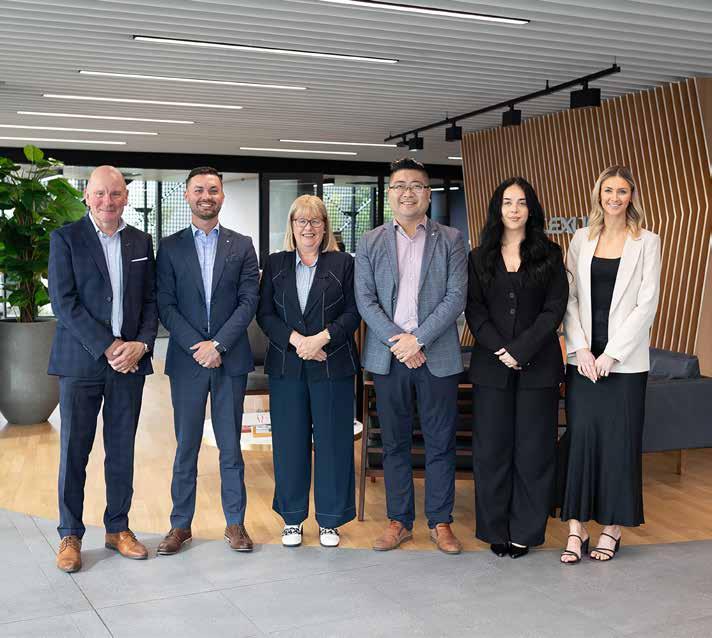
spring 2025

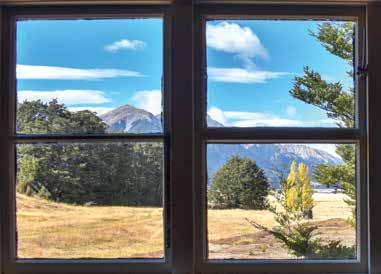


spring 2025



Email: venues@stmargarets.school.nz

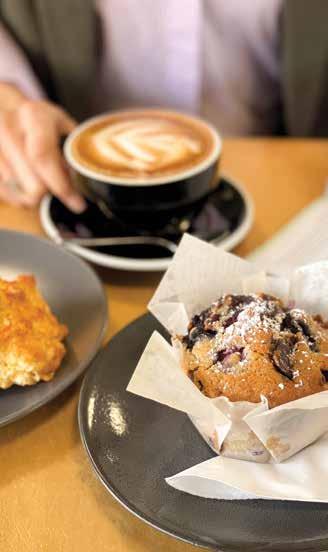







Conversations in the education sector have been dominated recently by the government’s announcement of significant changes to the National Certificate of Educational Achievement (NCEA). At their heart, these reforms reflect a shift away from the pressure of three consecutive years of externally assessed qualifications for young New Zealanders, and towards a system that fosters stronger learning habits and deeper engagement with the curriculum.
For many schools, this will be a profound transition. For us, it is both familiar and affirming. Several of the changes announced reflect ones we embedded in our bespoke Year 11 Foundation Diploma four years ago.
An innovative programme designed by our teaching staff, our Foundation Diploma prepares students for the rigours of both the International Baccalaureate (IB) Diploma and NCEA Levels 2 and 3. For example, requiring students to complete all assessments is a practice already in place at St Margaret’s, as is the requirement to continue studying English, mathematics and at least one science in Year 11. These structures encourage perseverance, breadth and depth of learning, and support the development of the valuable learning habits we know are essential for life well beyond school.
The government can be commended for making these changes. However, a number of challenges lie ahead. For the wider schools sector to succeed in this transition, a curriculum refresh must be completed and robustly resourced. Teachers, students and whānau all deserve clarity and confidence in the programmes that underpin their learning. Well developed curriculum materials will
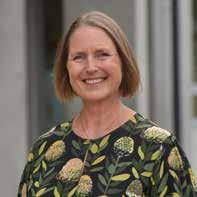
be needed to ensure it is the curriculum and classroom practice that is leading students, not the assessment system.
As an independent school, St Margaret’s is able to adapt our curricula to the specific needs of our students. With the work undertaken more than four years ago, we can be confident that our Year 11 girls are well prepared for the challenges of Senior School and beyond.
At St Margaret’s, we know the value of providing diverse opportunities for our students, whether through our dual pathway of IB and NCEA or the extensive programme of co curricular and service activities. Choice is a powerful tool for student wellbeing: it allows young women to select the qualification that best suits their learning style, future aspirations, and personal growth. The IB, with its international perspective, extended research project and emphasis on service, sits naturally alongside the breadth of NCEA. Together, they allow us to support students with differing strengths, ambitions and needs.
Underlying all of this is a truth we hold close: qualifications are not the sole measure of success. The attributes that matter most, curiosity, perseverance, empathy, and the ability to contribute positively to one’s community, come from rich classroom experiences and a connected school environment. These attributes are nurtured through strong relationships with teachers, robust wellbeing support, and the values of service and leadership that lie at the heart of a St Margaret’s education, and are demonstrated by our alumnae time and again.
Diana Patchett, Executive Principal
In this edition of Evergreen, we’re focusing on entrepreneurship, sharing inspiring stories and interviews with past St Margaret’s students who are making an incredible impact in our community. You’ll read about Elise Batt, founder of Fork and The Sustainable Food Co. and her drive to reduce waste in the events industry; Kate Twigg, founder of O Studio Wellington who is helping people to find stillness and reconnection with themselves; and Mya Reid who has demonstrated how far entrepreneurial thinking can take you in the primary industries.
Last month, the Committee was proud to relaunch the Old Girls’ Scholarship to coincide with Senior Scholarships. The Old Girls’ Scholarship will be formally introduced next year and will support students from Year 9 for their entire time at the College. While the scholarship remains available exclusively to descendants of alumnae, its focus has shifted from hardship to excellence and contribution to the community. We believe this new direction truly



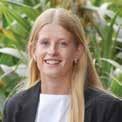
reflects our Old Girls’ Association’s values and will have a lasting impact, fostering generations of girls who flourish within the St Margaret’s community.
This year has also seen the introduction of new initiatives that have been extremely well received, and we’re planning to add even more events to the Old Girls’ calendar. Our goal is to create opportunities that connect all age groups, and strengthen the ties between past and current students. We want today’s students to experience firsthand the benefits of being part of such a supportive and inspiring Old Girls’ network. At the heart of all these events is connection, with each event designed to bring Old Girls together in meaningful ways to connect, grow, network, and empower one another.
We are also delighted to welcome several new faces to our Committee this year. Each of our committee members generously contributes their time and expertise to strengthen and grow our community, fostering connections among past and present St Margaret’s women.





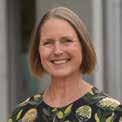





At St Margaret’s College, entrepreneurship is not just a concept taught in a classroom; it’s lived and experienced by our Year 13 Business Studies students. Each year, students work collaboratively in groups to conceive, develop, and market their own products, bringing ideas from paper to production in a way that mirrors real world business ventures. This immersive experience challenges them to think critically, act creatively, and collaborate effectively, preparing them with skills that will serve them far beyond their school years.
The process begins with the spark of an idea. Students are encouraged to identify a problem, need, or opportunity, and to design a product to meet it. For Ceire and Elysse, that opportunity was in the beauty industry. Their brand, Oaty Cosmetics, created Purely Set, a fake tan drying powder infused with natural oats, an ingredient known for its soothing properties on sensitive skin. By replacing harmful talc powder with a safe, nourishing alternative, the girls produced a product that not only solved a problem for fake tan users but also offered a healthier option. “Adaptability was an important skill Elysse and I have learned through this process,” Ceire explained, reflecting on challenges around packaging and formulation. “We managed to keep going and keep the business growing throughout the year.”
Other groups, like the team behind IN AN INSTANT, discovered how powerful it is to divide tasks based on individual strengths. Their premium instant coffee brand combined convenience with wellness, offering flavours like Cinnamon Roll Latte and Strawberry Latte while
incorporating Lion’s Mane mushroom powder for its cognitive and immune boosting benefits.
With Holly leading as CEO and CFO, Piper directing marketing and sales, and Audrey overseeing operations and design, the trio demonstrated how diverse talents can merge to build a thriving business. “Our ability to collaborate effectively has been key to IN AN INSTANT’s success so far,” the team reflected. Their stylish packaging, strong brand identity, and eco friendly ethos show how aligning values with business goals can make a product stand out in a crowded market.
For Maggie and her group, the journey was deeply personal. Their shimmering body oil, Radiant Body Oil, blended skincare with sustainability. By incorporating lanolin, a natural emollient derived from sheep’s wool, they not only tapped into a growing beauty trend but also supported New Zealand’s rural sector. A portion of each sale goes to the Rural Support Trust, a cause close to their hearts. “As three girls from rural backgrounds, we have noticed the wool industry struggling… and want to bring attention back to it,” the group shared. Their business proves that entrepreneurship can be both profitable and purposeful, raising awareness and giving back to the community.
Sustainability was also central to Hollie’s project. Her group designed reusable wool air fresheners, offering a beautiful, eco friendly alternative to disposable products. Handmade from natural New Zealand wool, the air fresheners are infused with essential oils, proving that small changes can
have a big impact on the environment. Their innovation demonstrates how students can balance practicality with environmental consciousness, responding to consumer demand for sustainable products.
Practicality was at the heart of another group’s creation: Lush Lock it, a compact jewellery case with a built in keychain. Designed to keep jewellery safe during sports or travel, it’s simple, stylish, and solves an everyday problem. Their advice to aspiring entrepreneurs? “Trust yourself and your idea, it deserves the chance to become something real. And just have fun, it’s all about learning.”
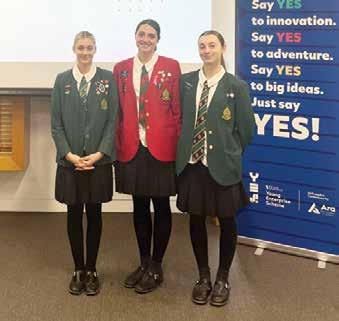
Across all groups, the common thread is growth. Students develop resilience, creativity, financial literacy, and marketing expertise. They learn to pitch, promote, and problem solve. They also experience first hand the excitement and challenges of bringing a product to market. Most importantly, they gain the confidence to take risks and trust their instincts.
As the next generation of leaders, innovators, and change makers, our Year 13 Business Studies students are leaving school with the experience of turning ideas into enterprises and the practical skills to make a lasting impact.




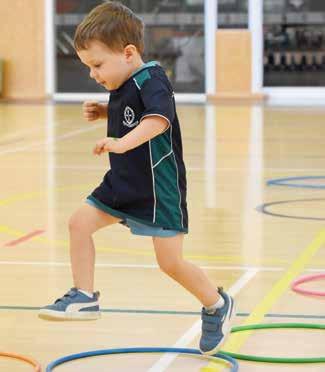

Boys and girls enjoy a vibrant and well rounded curriculum designed to spark curiosity, build confidence, and foster a lifelong love of learning. Every experience is created to support each child’s growth as they prepare for a successful transition to primary school and beyond.
Specialist classes, including science exploration, technology, PE, the arts, dance, and yoga, offer exciting opportunities to try new things, build social connections, strengthen motor skills, and traverse the St Margaret’s campus.
These specialist classes complement a robust literacy, numeracy and inquiry curriculum, and a comprehensive transition to school programme, led by qualified primary school teachers who ensure our youngest learners are ready to take their next steps with confidence.

“What does a deeply effective, science-informed approach to teaching mathematics to Junior School girls look like?”
For eighteen months, our Junior School team has been focused on answering this question. Our teachers have reviewed global research, studied leading maths education systems, and consulted with experts. Their goal? To find a maths programme that reflects the Science of Learning, supports excellent teaching practice from New Entrant to Year 6, and equips our girls with the tools to think critically and creatively.
Their journey led them to Maths No Problem. This world class programme is inspired by the highly successful Singaporean approach to teaching maths. A structured and evidence based curriculum, Maths No Problem builds conceptual understanding from the ground up. Just as our structured literacy programme, introduced more than five years ago, teaches students the ‘why’ behind language, Maths No Problem empowers students to understand the ‘why’ behind numbers, laying the foundation for true mathematical confidence.
According to Bridget Compton Moen, Head of Junior School, since the introduce of Maths No Problem in Term 1, we are already seeing transformative results:
“From our youngest learners upwards, our girls are building deep number sense and solid conceptual understanding. They are thinking deeply and creatively, and learning to articulate their thinking, justify strategies, and engage with one another’s ideas.”
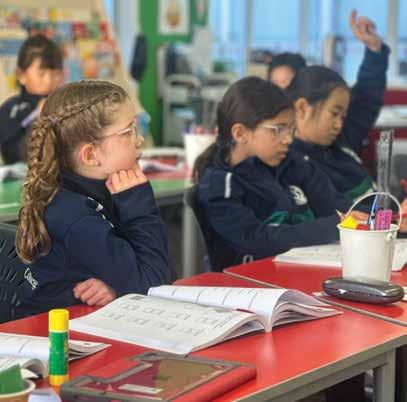

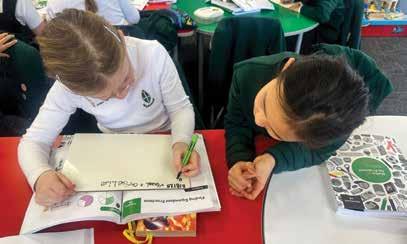
Bridget says that girls are excited by the challenges posed by their maths curriculum, supported by consistent mathematical vocabulary across all year levels, and clear structures and routines, where each lesson follows a proven format that maximises learning time.
“We are always asking “how can we better support the learning and confidence of our girls?” With Maths No Problem, we have taken another bold and thoughtful step forward. We are not just teaching maths, we’re supporting every girl to see herself as a capable, curious and creative mathematician.”
“Instead of teaching leadership, we consciously create opportunities for our girls to lead,”
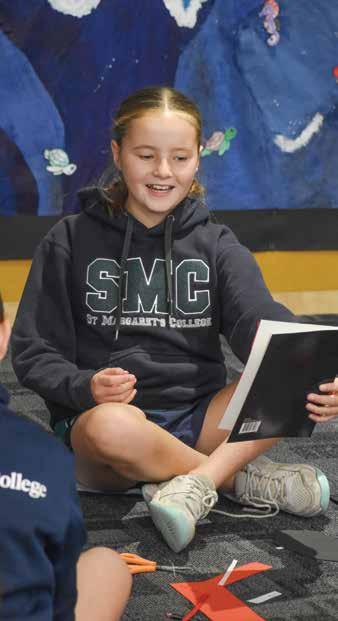


At St Margaret’s College, leadership is intentionally nurtured in every girl, from her first day to her final year as a Senior student. The philosophy is simple but powerful: authentic leadership is not about status or titles, it is about service, character, and courage.
As Head of Middle School, Kathryn Grey explains, “Instead of teaching leadership, we consciously create opportunities for our girls to lead.” This hands on approach ensures that by the time students step into formal leadership roles, they have already experienced what it means to influence, to serve, and to connect.
In Year 7, programmes like the Butterfly Effect encourage students to build self worth, resilience, and positive identity. These early experiences are crucial in forming the inner compass that will guide girls through adolescence.
By Year 8 and 9, leadership opportunities expand into the community. Students take part in service initiatives such as the Full Bellies programme, tackling food insecurity, and Eco Action, which involves planting native trees and supporting sustainability. These projects show students that leadership has a ripple effect; their actions can change lives and improve the world around them.
By the end of Year 10, every student has completed the Rite Journey, a transformative programme that challenges girls to consider who they are and how they want to contribute to society. It is a milestone that provides clarity of purpose and the confidence to move into Senior School with a strong sense of identity.
“We ground our teaching in the principle of servant leadership,” Kathryn says. “It’s about humility, empathy, and supporting the needs of others. These values stay with our girls for life.”
If Middle School lays the groundwork, Senior School takes leadership to the next level. Here, the focus is on putting character into action through real world experiences that demand resilience, empathy, and decision making.
James Evans, Deputy Head of Senior School Student Care and Experience, highlights the College’s unique partnership with brother school Christ’s College, which begins in Year 11. “The purpose is to get Year 11s to think about how they relate to each other, within their cohort and across schools,” he explains.
The programme starts with relationship building days that go far beyond icebreakers. Students engage with organisations such as the Canterbury Resettlement Service, learning to connect with people from refugee and migrant backgrounds. They also take part in police led workshops on safety, relationships, and wellbeing. The goal is to ground students in empathy, respect, and social awareness.
By Year 12, the leadership programme intensifies. Students gather with their peers from Christ’s College for immersive workshops with speakers who share lived experiences of leading through adversity. This year, Jake Bailey, remembered nationwide for his inspiring school speech while undergoing cancer treatment, joined adventurers, coaches, and high performance leaders to challenge students’ thinking.
“Leadership isn’t about titles or positions,” James emphasises. “Everyone has the capacity and everyone will lead in their own way.”
Perhaps the most powerful expression of this philosophy is the Sony Foundation Children’s Camp, run jointly by St Margaret’s and Christ’s College. Over one extraordinary weekend, 120 students care for children with disabilities, serving as companions and caregivers. “Sony Camp brings it all into the real world for them,” James says. “It’s an unconventional opportunity you just can’t replicate in a classroom.”
In September, the entire Year 12 cohort travels to Living Springs for an overnight leadership retreat. Here, students explore team dynamics, reflect on their role as future Year 13 leaders, and help develop the school’s annual theme. The retreat is deliberately designed to push them out of their comfort zones and into the realm of authentic leadership. By the time they reach their final year, St Margaret’s students are not just participants in leadership, they are role models. Whether leading through service projects, captaining teams, or mentoring younger students, Year 13s embody the College’s core value of dedication to a higher purpose.
International opportunities like the Duke of Edinburgh’s Hillary Award and World Challenge expeditions offer further chances to test resilience and adaptability. Students trek through unfamiliar environments, navigate cultural differences, and make decisions that carry real consequences, all while learning the importance of teamwork and humility.
What makes the St Margaret’s programme distinctive is its blend of structured teaching and lived experience. Workshops on trust, communication, and empathy are combined with opportunities to put these skills into action, whether that’s serving lunch to a hungry family, planting trees, or caring for a child with a disability.
“Every student has unique leadership potential waiting to be discovered and developed,” James says. “Through real world experiences, collaboration with Christ’s College, and a commitment to service, our senior students are learning not just how to lead, but why leadership matters.”
This whole person approach is only possible because of the independence of St Margaret’s. As Kathryn notes, “Our independence gives us the flexibility to implement programmes that we know work, programmes which equip young people with the inner compass they need to navigate challenges, and who understand that real leadership is about making a positive impact on the world around them.”
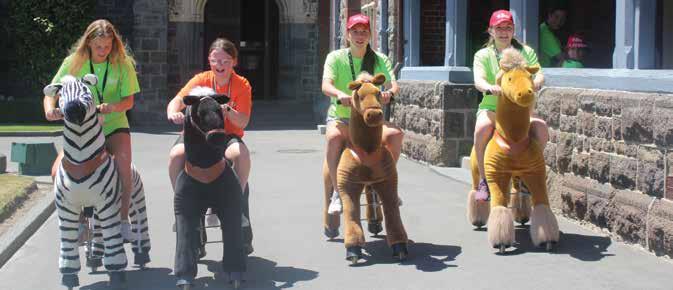
“It’s sparking connections and skills that develop the cognitive abilities needed for success.”

When the answer to anything at all can be found at the click of a finger, what is it that young school leavers need to know more than anything else?
Amanda Woods, Head of Faculty for Performing Arts, passionately believes students who understand how to collaborate with others, take risks, and learn new information in different ways, are set for success in the real world.
“That’s why we put such value on developing a love of performing arts in our students,” she explains. “When the laptops are away, the learning that students are doing in music and performing arts lessons is like fireworks going off in the brain. It’s sparking connections and skills that develop the cognitive abilities needed for success.”
At St Margaret’s College, the arts are more than simply cocurricular activities. They’re an integral aspect of everyday life. From our youngest learners in Junior School to our Senior students, our arts programme is built on a simple but fundamental philosophy: creativity is for everyone.
Our music and performing arts offerings are remarkably comprehensive. From Junior School onwards, performing arts are embedded into the curriculum. Year 1 students join school productions, by Year 4 every student learns the violin, and throughout music, drama, visual art, and dance are on offer.
Amanda explains that as students progress, the opportunities expand dramatically.
“Our itinerant music programme supports approximately 180 students across 20 different specialties, offering lessons in everything from guitar to harp. Rock bands, jazz ensembles, orchestras, and choirs provide platforms for students to work together and perform,” she says.
A philosophy of inclusivity
“Encouraging a student to stretch outside of her comfort zone shows her what she can achieve. Our approach is fundamentally inclusive. Girls will tell me they can’t sing – we’ll find them a place in the ensemble, where they are lifted by the power of the group. They tell me they’re too shy to act – we’ll make sure they know this is a safe space to give it a go.
“There’s a quiet transformation that happens when a student loses her performance anxiety and discovers she can do it. What she doesn’t see is those breakthrough moments creating sparks in her neural pathways, and building the confidence that will serve her in her classrooms, meeting rooms and conversations for decades to come,” she says.
As Amanda explains, “We’re not just teaching music or drama. We’re teaching critical thinking, collaboration, and communication. The artistic content is the vehicle, but the life skills are what students carry forward.”

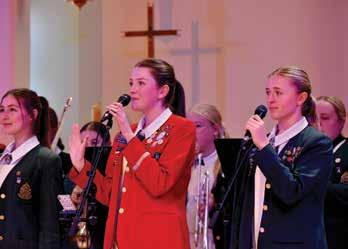




St Margaret’s College has written its name into the record books, claiming three national championships in 2025. The Hockey 1st XI, Senior A Volleyball, and the U18 Rowing Eight all struck gold at their respective tournaments, capping a year defined by grit, talent, and team spirit.
Executive Principal Diana Patchett says the results reflect the very best of St Margaret’s sporting culture. “These girls don’t just play to win. They compete with integrity, lift each other up, and genuinely love the game. That combination is powerful.”
More than 90% of students take part in sport across 30 different codes, and athletes are backed by experienced coaches, dedicated staff, and a supportive parent network. Director of Sport Helen Belcher adds, “To see our students make history in volleyball, take home the Levin Jubilee Cup in rowing, and the national Federation Cup hockey title was unforgettable. This success belongs to the girls, their coaches, and the community cheering them on.”
Old Girls have been quick to celebrate the moment. Harvard graduate Maddie Earle (Year 9 2011) said it was wonderful to see the girls winning again, “I was a member of the 1st XI who won Fed Cup in 2013. It’s such an honour to be an SMC Old Girl, I wouldn’t have had the opportunity to study and play at Harvard without the foundation it gave me.”
Rowing alumna Ella Greenslade (Year 9 2010), who went on to win a silver medal at the Tokyo Olympics, describes what the win means for her, “As an Old Girl, it’s so special to see SMC teams achieving incredible things, not just in results, but in the way they carry themselves. The determination, humility, and genuine team spirit they show reflect the values that make St Margaret’s such a unique and inspiring place to grow. I am very proud to be an SMC Old Girl, and it warms my heart to see our girls not only strive for excellence but also be happy, well rounded individuals who I know will carry on to do great things with their lives.”
Volleyball’s breakthrough resonated with past players too, Emma Mason (Year 9 2019) says: “It makes me so proud to see SMC girls excelling on so many sporting stages. Their success is a testament to the passion, perseverance, and sisterhood that make St Margaret’s so special, as well as the amazing teachers and coaches that help make it possible.”
Beyond the national headlines, St Margaret’s also collected a number of regional and South Island championships in cricket, cycling, equestrian, football, netball, tennis, and triathlon. Together, they paint a picture of a school where sport is woven into the fabric of daily life.
As the 2025 season winds down, St Margaret’s students are proof that when talent meets tenacity, history is made.


SMC Rowing
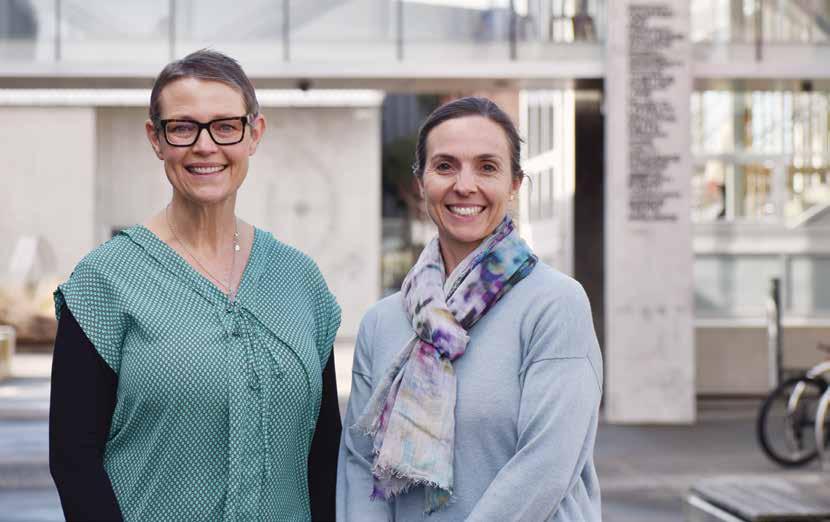
In education, sometimes the smallest changes can spark the biggest impact. That philosophy sits at the heart of ‘Teaching That Sticks: Quick Wins for Big Classroom Gains’, a dynamic workshop presented by St Margaret’s College Junior School teachers Betsy Ryan and Sophie Huston at the recent International Collation of Girls’ Schools (ICGS) conference. Sophie and Betsy’s presentation explored powerful, research informed strategies to boost engagement, retention, and wellbeing in classrooms, and, importantly, to do so in ways that can be implemented straight away.
So why focus on ‘quick wins’? As Betsy explains, “Teachers are constantly juggling competing demands. ‘Quick wins’ offer accessible strategies that can be embedded immediately without requiring an overhaul of existing routines.” These practical adjustments, grounded in evidence and best practice, allow educators to feel a sense of progress and impact right away, which fuels motivation for longer term change.
Sophie adds that the power of quick wins lies in how rapidly they build student trust and confidence. “When our girls see us trying new strategies that make learning more engaging, they respond with real enthusiasm. It strengthens our connection and reassures them that their wellbeing is always a priority in our classroom.”
Among the tools Betsy and Sophie shared were formative assessment techniques that provide fast, actionable feedback, as well as engagement strategies designed to capture attention and sustain focus. These include low prep practices like circle sharing, repeated reading, and retrieval practice; activities that help students consolidate their understanding before moving forward.
Pastoral care was also front and centre. Sophie, known for her deep commitment to the holistic development of learners, demonstrated how small rituals like daily check ins, reflective journaling or circle time conversations can nurture belonging and resilience. Betsy, with her expertise in inquiry learning, shared how framing lessons around authentic questions not only drives curiosity but also empowers girls to lead their own learning journeys.
The results speak for themselves. Both teachers have seen higher levels of engagement, improved retention, and, perhaps most importantly, a stronger sense of wellbeing among their students. “You can feel it in the classroom,” Betsy says. “There’s more energy, more ownership of learning and more confidence to take risks.” Feedback from colleagues who have adopted these strategies has been equally positive, with many noting how manageable yet transformative the approaches feel.


Presenting these ideas to an international audience of educators was both energising and affirming. “We were humbled by the enthusiasm from attendees,” Sophie reflects. “It was exciting to see that the challenges we face are universal, and that these strategies can resonate across cultures and contexts.”
Both Sophie and Betsy are committed to building on this momentum within St Margaret’s and beyond. They see ‘quick wins’ not as a one off workshop idea, wwbut as a philosophy for continual growth. Head of Junior School Bridget Compton Moen reinforces this, “In every classroom, we use evidence based approaches to teaching and learning. Structured literacy, a structured approach to maths, and familiar routines help our girls feel confident, give them a strong sense of belonging and make their learning stick.”
By equipping teachers with research informed strategies that are simple, purposeful, and effective, we see that even the smallest changes can leave a lasting mark on student learning and wellbeing.



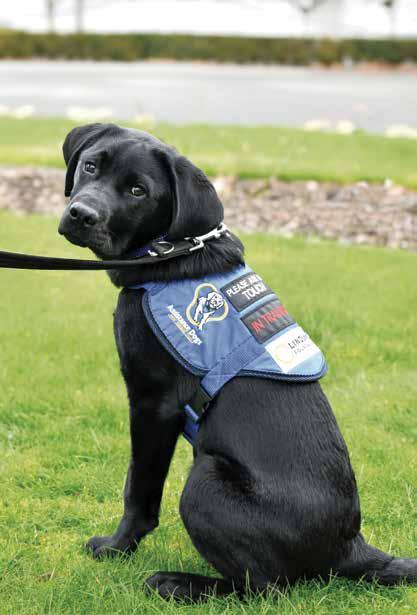
Life in the St Margaret’s College boarding houses has gone to the dogs, in the best possible way. Two playful pups named Talia and Taco have joined the boarding community, bringing with them a wave of tail wagging joy, comfort, and new responsibilities for students and staff alike.
The initiative, led by Director of Boarding Rachel Clemenger and Senior Head of Boarding Mary Balsom, sees the puppies being trained as future assistance dogs, as part of a partnership with Assistance Dogs New Zealand Trust. For now, however, they’re settling into life at St Margaret’s, charming everyone they meet.
“I’ve embraced a new kind of lifelong learning, becoming a first time puppy owner!” says Rachel. “Talia’s playful energy, cuddles, and constant tail wagging have brought so much joy to our boarders. There’s been more running, smiling, and laughter than ever.”
Talia lives with Rachel, while Taco lives with Mary and her husband, Roger. “We were very excited to welcome our newest boarder to Kilburn,” says Mary. “Taco will be with us for the next 14–16 months before he enters formal training to become a special child’s support companion.”
The puppies’ impact has already been felt deeply by students. Julius boarder Jemma Hanna says, “The puppies bring joy to everyone. The boarders love helping, teaching them their new job and having a new responsibility.”
For many girls living far from home, the pups offer a sense of familiarity and emotional support. “I was so excited, I felt like a bit of my farm home had come to Christchurch,” says Frankie Wells. “The past few weeks with Talia and Taco have been so nice.”
Zyvanah Reid agrees: “The whole boarding house definitely finds the puppies comforting when we’re missing home or feeling stressed. They light up my day.”
While the ultimate goal is to train the puppies for assistance work, the boarding team is already seeing the benefits. As Rachel puts it, “It’s been a heartwarming reminder that learning can come in all forms, even four legged ones.”
With Talia and Taco now familiar faces around the boarding precinct, it’s clear these furry additions have become more than just pets; they’re part of the family.
Founders’ Day is one of the most significant occasions in the life of our school. It is a time when we pause to honour those whose vision, courage, and faith, established the foundations upon which we continue to build. From the earliest discussions led by Bishop Julius in 1906, to the arrival of the Sisters of the Church in 1909, and the opening of our doors to 83 girls in February 1910, our history is woven with faith, dedication, service, and a deep commitment to the education and flourishing of young women.
When the Diocese of Christchurch took over the running of the school in 1931, Mrs Stephanie Grace Young, our first lay Headmistress, established traditions that remain at the heart of our identity. Among these is the Founders’ Day service which incorporates the Ceremony of Lights, where each Prefect affirms a virtue, such as compassion,
loyalty, or wisdom, symbolising the values that guide us as a community. These virtues, drawn from our Anglican heritage, remind us that education is not only about knowledge, but about character shaped by faith, hope, and love. The candles represent the light of their lives and lighting the way for others who come after us, and thus students from Years 6, 10 and 12 light their candles from the Prefects.
Founders’ Day connects us across generations. It calls us to gratitude for those who came before, to responsibility for the present, and to vision for the future. In the light of our Anglican character, it speaks of dedication to God through Jesus Christ, to one another, and to the call to serve in the world with courage, kindness, and integrity.
Blessings and aroha, Rev. Steph Clay, Chaplain




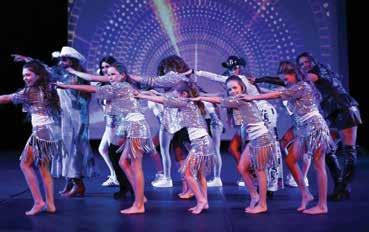
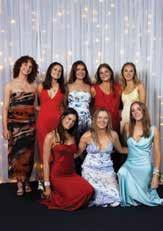

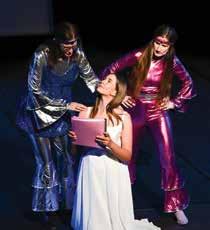

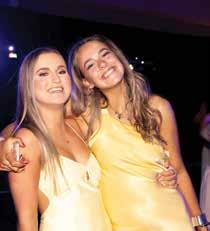









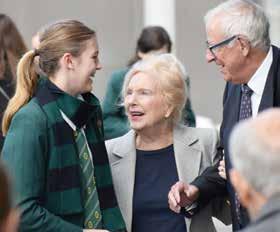
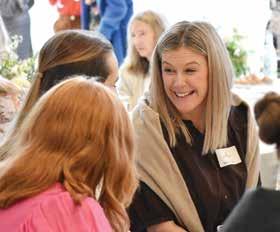
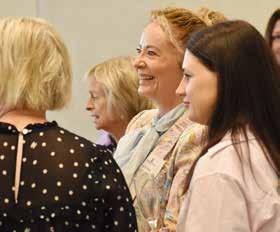



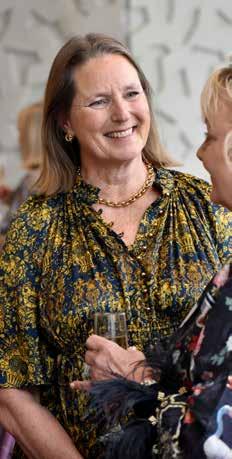
The Parents and Friends Association (PFA) recently welcomed New Zealand registered dietitian and former professional netballer Jess Moulds to speak to students, parents, and caregivers about how best to fuel growing bodies and busy lives.
In a world overflowing with information, some of it credible, some less so, it was refreshing and reassuring to hear Jess’s practical advice, grounded in 15 years of experience working with young people and high performance athletes.
Jess brought us real world, down to earth advice. She emphasised the importance of making sure girls are fueling their bodies, and shared strategies for tackling under fueling. She also shared helpful ideas on what girls can eat to ‘grow, go and glow”, and how to create a positive, balanced food environment at home and at school.
We know parenting isn’t easy. That’s why the PFA is committed to supporting a Parent Education series led by experts like Jess, Dr Justin Coulson (on screen time and safety), and Dr Danielle Einstein and Dr Judith Locke (on navigating common childhood worries). These events are central to the PFA’s mission of nurturing meaningful connections among parents and whānau in a supportive, inclusive community.
Thursday 5 February 5:00pm – 7:00pm On the field


If you have ideas for speakers or topics for the PFA Parent Education series we would love to hear them. Please be in touch via communications@stmargarets.school.nz.
Cheryl Cordier, PFA President

Learn more about the PFA and join our next meeting by visiting SMC Connect.


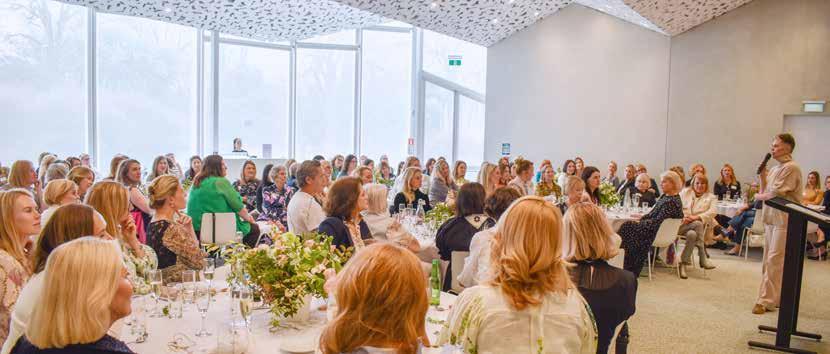
There are moments in the life of St Margaret’s College when you feel the true strength of its spirit and our recent Spring Lunch was one of those moments. Surrounded by friends, alumnae, and supporters, we were reminded once again that St Margaret’s is more than a place of learning. It is a community, woven together by shared values, enduring friendships, and a collective belief in the power of education to shape lives.
This year’s Spring Lunch was a true celebration of community. We were especially grateful to welcome New Zealand fashion icon Karen Walker, who inspired us with her journey in the fashion world. Our thanks also go to local retailer Treasure Box by Biani for their generous sponsorship, and our amazing Year 13 dancers who proved to us that any time is a good time to salsa!
Community is at the heart of everything we do. It is there in the parents who give their time, the alumnae who return to support the next generation, and the staff who go above and beyond for their students. It is present in our students through their acts of kindness, in the spirit of volunteering, and in the willingness to step forward when help is needed.
Events like the Spring Lunch shine a light on what community means at St Margaret’s. Every ticket purchased is a thread in the larger tapestry of support that ensures St Margaret’s continues to thrive.
Together, we are nurturing a legacy of connection, belonging, and shared strength. And that is the true power of community.
Erin Reeve, Foundation Manager foundation@stmargarets.school.nz

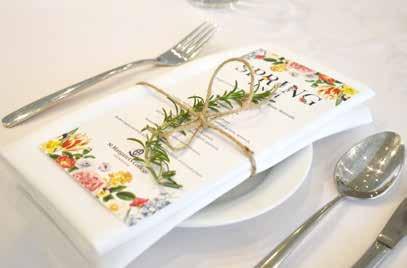

Old Girls’ lunch celebrated across the country
While many gathered in Christchurch for the annual Cranmer Old Girls’ Lunch, a smaller but no less spirited reunion took place just north of Auckland. Unable to make the long trip south, a group of five lifelong friends, Margaret Henley (née Westgarth), Jennifer Orchard, Alison Anderson, Helen Stowell and Judith Wear (née Pickles), marked the occasion their own way, celebrating Margaret’s 90th birthday with a lunch by the sea.
The setting was perfect: sunshine, boats bobbing on the water, and a table full of laughter and memories stretching back more than 80 years. All were delighted when a surprise delivery of creamy white and green flowers arrived, a gift from the St Margaret’s College Old Girls’ Association. The colour choice, school colours, of course, sparked vivid recollections of cream tunics in summer, green in winter, and assemblies spent sitting cross legged on the floor while Mrs Young, the headmistress, likened the girls to “rows of cabbages.”
“It made our day,” wrote Judith. “We were all bubbling up in the clouds.”
There was one sadness, the absence of Jenny Vernon, who had suffered a fall the week before and was in hospital recovering from a broken pelvis and shoulder. But the
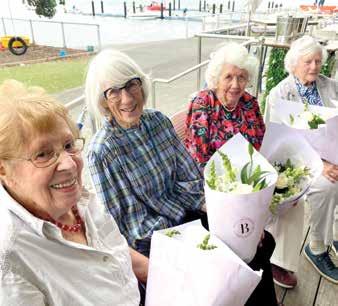
bond between classmates endures: Margaret, along with her daughters, brought the flowers to Jenny the next morning. The two women have been friends since their first day at St Margaret’s, proof that some connections truly do last a lifetime.
“Thank you all again for adding to a special, memorable occasion,” Judith wrote. “There was a lot of laughter.”
Though separated by geography, this group of Old Girls were united in spirit with those gathered in Christchurch, celebrating friendship, shared history, and the enduring joy of the St Margaret’s sisterhood.
From left to right: Allison McFarlane (Anderson), Margaret Henley, (Westgarth), Judith Wear, (Pickles) Helen Stowell (Kola Harrison).

Thursday 27 November 5:30pm

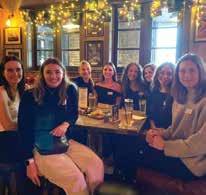

Jennifer Pryor’s (Year 9 1962) lifelong dedication to health, learning, and service reads like a tapestry of determination, and heart. A pioneering physiotherapist whose career spanned continents and decades, Jennifer now brings that same spirit into a vibrant retirement, rich with friendship and volunteerism.
Jennifer’s path into physiotherapy began in the shadow of medicine, literally. Her parents were both doctors, and while she initially considered following in their footsteps, it was the practical realities of the time that set her course. “In those days, there wasn’t much career advice. For women, it was nursing, physiotherapy or secretarial work,” she reflects. Staying in Canterbury rather than heading to Otago for medical school, Jennifer immersed herself in university life and hockey before pivoting toward physiotherapy. She credits a combination of family encouragement, opportunity, and a bit of serendipity for launching a career that would define her life.
Her early work started at Christchurch Hospital before moving to Christchurch’s Princess Margaret Hospital to specialise in cardiothoracic physiotherapy. Jennifer was lucky enough to have the renowned Heath and Bernice Thompson mentor her. Their “gentle huffing” breathing technique would later become a global best practice, largely thanks to Jennifer’s tireless research, publishing, and teaching.
An Overseas Experience with a St Margaret’s friend took her to London, where a short locum position at the Royal Brompton Hospital turned into a permanent role and the beginning of an international legacy. Jennifer’s expertise and initiative led to groundbreaking clinical trials that confirmed the efficacy of the Thompson technique. “The rest of the world sat up and took notice,” she says. Through publications in peer reviewed journals including the British Medical Journal, lectures, textbooks and research partnerships with institutions like Imperial College, she helped redefine respiratory physiotherapy for future generations.
Jennifer’s academic hunger didn’t end there. She pursued a master’s degree in research methods at King’s College and later a PHD and an MBA, credentials that propelled her into leadership roles and expanded her impact. But when politics and bureaucracy began to cloud her superintendent role, she gracefully transitioned into full time research, teaching, and even private practice, all while mentoring countless younger colleagues.

After retiring at 60, Jennifer planned to spend a year enjoying London, but fate intervened. Late night internet surfing found her an ideal bolthole in St Albans, returning to Christchurch just weeks before the September earthquake struck. “I thought, this is a bit different,” she recalls, after discovering a collapsed chimney. Despite the chaos, she quickly re established herself, surrounded by family, former colleagues, and old school friends.
Retirement, however, was anything but quiet. Jennifer lent her writing skills to the 125 year history of ladies’ golf at the Christchurch Golf Club, joined multiple community committees, and accepted a place on the St Margaret’s College Old Girls’ Committee. “I hadn’t been associated with school since leaving,” she says. “But I loved the energy of the young women, their enthusiasm. After three years, it was time to step back and let them lead, but I still help, clearing tables, for example!”
She’s clear eyed about what makes for a meaningful retirement. “You can’t go from a seven day work week to nothing,” she advises. “Start developing outside interests before you finish. Whether it’s the arts, bridge, or sport, know where you want to head. There’s a real need for early retirees in charities and community groups.”
Now, her days are happily filled with bridge, garden projects, and long walks with Maddie, the spirited red border collie who keeps her on her toes. “We are inseparable,” she smiles. And while some friends have moved into retirement villages, Jennifer is content to stay put. “Maddie wouldn’t pass the interview,” she laughs. “But I might get a bit of help around the house.”
Jennifer Pryor’s life is a masterclass in purposeful living, anchored in service, fuelled by curiosity, and led by heart. Retirement, for her, simply is a new chapter in a life well lived.


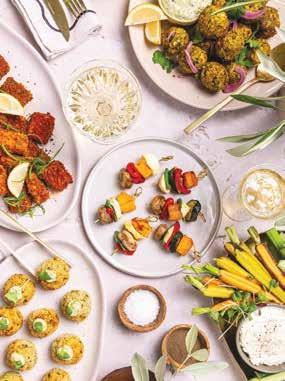
For Elise Batt (Year 9 2010), catering isn’t just a career; it’s in her blood. Growing up in Christchurch, she was immersed in a family where food and hospitality were more a way of life. Her mother and Nana ran a catering business from home, and from an early age, Elise was by their side, soaking in the aromas, the hard work and their unwavering commitment to excellence.
“By Year 9, I was already throwing dinner parties for Mum’s friends, three course meals just for fun,” she recalls. “I’ve always loved a project, from planning the menus to plating it all up. I loved it all, except doing the dishes, which my Dad can definitely confirm!”
Elise’s mum, Debra, a perfectionist in the kitchen, instilled a deep respect for quality, detail, and presentation. “Some of her original canapés are still on Fork’s menu today,” Elise says proudly. “Her Thai chicken salad in wonton cases are famous in Christchurch!”
Despite these roots, Elise initially pursued a different path, studying Finance and Analytics with the goal of working in corporate finance. But after a couple of years in the industry, she realised something was missing. “I wanted something more dynamic and hands on,” she says. “Given my upbringing, I knew running a catering company would definitely tick those boxes.”
That realisation led to the birth of Fork, her boutique catering brand known for its thoughtful, seasonal menus and premium service. Yet Elise’s entrepreneurial journey didn’t stop there. When the opportunity arose to acquire The Sustainable Food Co., she jumped at the chance.
“I’d had my eye on The Sustainable Food Co. for a while,” she says. “It was a values led business tackling the environmental impact of events, and that really resonated with me.”
The timing couldn’t have been better. At a crossroads with Fork, to either stay small or scale up; acquiring The Sustainable Food Co. gave Elise the momentum she needed. The two brands now operate side by side, each serving a distinct market while sharing core values around quality and sustainability.
“Fork is our more boutique, premium offering,” Elise explains. “The Sustainable Food Co. is focused on the mid market with standout vegetarian and vegan menus. Together, they’ve helped us grow and raise the bar.”
Sustainability is embedded in everything they do. Elise has implemented low waste systems across both Fork and The Sustainable Food Co., ensuring that even on the busiest days, waste is kept to an absolute minimum. “We only produce about a quarter of a standard household rubbish bin per day,” she says. “Seeing how much waste we divert from landfill is genuinely one of the most satisfying parts of what we do.”
Looking ahead, Elise hopes her businesses can influence the wider catering scene, both in how food is presented and how businesses operate. “I want to keep showing that catering can be elevated, creative, and sustainable without compromising on flavour nor experience.”
Through The Sustainable Food Co., Elise helping redefine what plant forward catering looks like, and she’s confident that more clients and caterers will follow suit. “It’s not just a niche offering. It’s smart, scalable, and in demand.”
For Elise, success is about more than delicious food; it’s about inspiring change and proving that doing things differently can work ethically and commercially. “At the end of the day, I hope our work encourages others in the industry to see that it’s not only possible to do things differently, but that it works.”
forkkitchen.co.nz / @forkkitchennz thesustainablefoodco.co.nz / thesustainablefoodco
Forging a path in the primary industries
In just five and a half years since leaving St Margaret’s College, Mya Reid (Year 9 2015) has carved out a dynamic and adventurous career in the primary industries. Recently, she returned to St Margaret’s to offer our Young Farmers Club a firsthand look at the experiences and challenges that have defined her path.
From classroom to the High Country Mya’s post school plan initially included Lincoln University, but a summer job at Gray’s Hills High Country Station in the breathtaking Mackenzie Basin changed everything. Working as a horse groom, she made the bold decision to forgo university in favour of hands on experience.
Although academia was not her strong suit, Mya deeply valued the education and opportunities St Margaret’s provided. However, with a childhood spent on a farm, her heart was set on the outdoors. At Gray’s Hills she immersed herself in the world of high quality wool production for export to Europe.
Her next step took her to Wairere Station near Masterton, a renowned stud farm specializing in cross breed sheep. At Wairere, each stud ewe had an identification tag, and lambs were linked to their mothers using a mobile device, creating invaluable maternal pedigree records.
From New Zealand paddocks to international polo arenas
With the farming job market in flux, Mya took a detour back into the equestrian world, landing a role as a polo groom in North Canterbury. Her first polo season saw her managing 40 horses for multiple tournaments each weekend, including the Savile Cup, the oldest sporting trophy in NZ. The event drew international players, and her hard work earned her an invitation to work in the UK. Despite the hurdles of lockdowns and contracting COVID 19, the experience was unforgettable.
Returning to New Zealand for another polo season, Mya was soon back in the UK this time accompanying 40 horses on an epic 55 hour journey aboard a Boeing 747. She was offered a permanent position overseeing international horse transportation but had already committed to another polo season in the UK. There, she braved a heatwave while living in a caravan and working six to seven day weeks in the unusually hot British summer.

industry
In September 2022, Mya returned home and, through her ever growing network, was invited to join Smart Shepherd NZ, a company developing cutting edge Bluetooth enabled collars to track maternal performance in sheep and deer, helping farmers make smarter breeding decisions.
The role taught Mya invaluable lessons in problem solving and adaptability. She quickly rose to second in command and later to an Operational Field Manager role, gaining a crash course in business management and teamwork.
A new chapter
Today, Mya works in livestock administration for PGG Wrightson in Dunedin, where she oversees livestock transactions, processing invoices, adjusting tallies, and handling transportation challenges.
She is excited by the sheer scale and diversity of opportunities in her role and is grateful for the balance it brings. After five years of long hours and high pressure roles, she now has more time to ride her horse and enjoy a healthier work life dynamic.
Mya encourages current St Margaret’s students to embrace their strengths and forge their own paths. She landed her first job by overcoming her shyness to pick up the phone and call the farmer direct, proving that independence and initiative will take you far in the primary industries.



When Old Girl Kate Twigg (nee Davidson, Year 9 1994) faced two cancer diagnoses—breast cancer followed by leukemia—her world was upended. Life as she knew it, built on busyness, performance, and pressure, collapsed. But from that place of profound stillness, a new vision emerged, one rooted not in survival, but in healing, and ultimately, in sharing that healing with others.
“I didn’t start this business out of confidence,” Kate reflects. “It came from clarity. Cancer forced me to sit still, to go inward. And in that space, I started learning how to heal, really heal.”
Through her recovery, Kate discovered a set of transformative wellness tools: breathwork, cold exposure, meditation, and float therapy. Each played a role in regulating her nervous system and reconnecting her with her body. “I kept thinking, why aren’t these practices everywhere? Why did it take getting sick for me to discover them?”
That question became a calling. Today, Kate is the founder of O Studio Wellington, a sanctuary for nervous system health that offers a holistic blend of therapies—sauna, ice baths, float therapy, massage, breathwork and more— designed to restore balance and reconnect people with themselves.
Launching a wellness studio from scratch, however, came with its own set of hurdles. For Kate, the biggest challenge wasn’t logistics or funding, it was staying true to the lessons cancer had taught her.
“During treatment, I had no choice but to slow down and trust the process. That doesn’t come naturally in the business world, where everything’s fast paced and goal driven. But I’ve had to actively remind myself: you’re aligned with your values. Breathe. Trust.”
This approach, she believes, represents a new kind of leadership that is calm, conscious, and connected. “There are still days I feel the pressure, the setbacks, but I’ve had
to choose nervous system regulation over reactivity. And that’s hard. But it’s also exactly what this space is about.”
At the heart of O Studio’s growth is a commitment to early and authentic community engagement. Rather than waiting until everything was “perfect,” Kate welcomed the community in from the start. “This isn’t a ‘build it and they will come’ kind of business. It’s a co creation.”
Soft launches, local collaborations, behind the scenes content, and listening deeply to feedback have all contributed to shaping a studio that feels more like a second home than a commercial enterprise. “I know what it’s like to feel disconnected and alone. I want people to walk into O Studio and think, these are my people. This is where I can exhale.”
In a crowded wellness market, Kate believes O Studio stands out because it’s not about chasing trends, it’s about serving the whole human. “We’re not slapping bandaids on burnout. We’re going to the root cause: nervous system health. And everything we offer, from float tanks to meditation, has that deeper goal.”
More than that, the studio’s welcoming, non intimidating atmosphere reflects Kate’s lived experience. “I’ve been in the trenches. I know what it’s like to crave calm and connection. That empathy shapes everything we do.”
Looking ahead, Kate envisions O Studio as a movement. “I want it to be a flagship hub for nervous system health. A place where people of all ages come to reset, to learn, to heal, not to escape life, but to return to themselves.”
As wellness trends evolve, Kate is committed to staying rooted in science, open to innovation, and always in conversation with the community. “Because the moment we stop listening, we lose the soul of it all.”
More than anything, Kate wants O Studio Wellington to remain “imperfect, evolving, heartfelt, and honest. Just like the journey that led me here.”
ostudio.co.nz/wellington


Mary Stapylton Smith (née Pretsch), a much loved member of the Diamond Harbour and Lincoln communities, passed away peacefully aged 92.
Born in 1932, Mary was the only child of older parents— her father, a German born New Zealand postman and Home Guard member, was 60 at the time of her birth; her mother was in her 40s. Though she lost both parents by the age of 22, Mary’s early years were rich with memory and character. She grew up on Creyke Road and biked three miles each day to attend St Margaret’s College from 1946 to 1951. An academic student, she studied French and German and fondly recalled her strict but kind headmistress, Mrs Young.
Following school, Mary studied horticulture at Lincoln College, where her lifelong love of plants and practical work began. Not long after, she married Paul Stapylton Smith, a handsome and kind hearted farmer. Together they built a home and a life at Camp Bay, Diamond Harbour, raising four children, including their daughter Bridget (Third form 1973), who sadly passed away in recent years. Mary’s deep love for her family extended to her five grandchildren and six great grandchildren.
Mary threw herself into rural community life. She was a pony club instructor, cub mistress, and served on the school committee. A proud two term member of the Banks Peninsula Community Board, she was instrumental in the long awaited establishment of a local cemetery in Diamond Harbour—now regarded as one of the most beautiful in New Zealand.
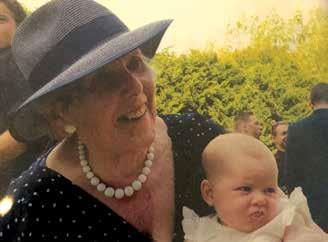
While raising her children, Mary completed a BA in English and history at Massey University. This, coupled with her passion for place and people, led her to become a local historian and author. Inspired by community storytelling, she wrote seven books—one novel and six non fiction titles—focusing on the history of Port Levy, Diamond Harbour, and the surrounding areas. In her later years, she was keen to document the rich past of the Orton Bradley estate at Charteris Bay, a treasured site of family outings and scouting adventures.
Mary spent her final years in Lincoln, where she enjoyed the expansive views of paddocks and mountains that reminded her of a life well lived and deeply rooted in the land.
She will be remembered for her intellect, creativity, fierce community spirit, and devotion to her family and region.
Wednesday 29 October
Wednesday 5 November
Thursday 6 November
Friday 7 – Saturday 8 November
Tuesday 18 November
Thursday 27 November
Friday 28 November
Thursday 4 December
Ashburton – Breakfast Community Event
Nelson – Community Event
Blenheim – Community Event
Reunion Weekend
Wānaka – Community Event
Christchurch Margaritas
Time Capsule Opening, Leavers of 2015
Year 13 Leavers’ Ball

St Margaret’s College mourns the loss of Christine Mary Wyeth, a much loved teacher, leader, colleague, and friend, who passed away peacefully at home in Karitāne on 16 August 2025, aged 74.
Chris began her career at St Margaret’s College in January 1991, joining as a part time mathematics teacher. Over the following 30 years, her role evolved alongside the school’s growth and transformation. She taught senior biology, general science, and mathematics, and eventually moved into a senior leadership role as Associate Principal in charge of Pastoral Care.
Through her long tenure, Chris served under three principals, helping shape some of the school’s most significant developments. She recalled the arrival of Principal Claudia Wysocki in 1992 as a turning point, when renewed pride and identity were fostered through bold rebranding, facility improvements, and a new uniform designed by Barbara Lee. Chris remembered these years as the foundation of the strong sense of belonging that defines St Margaret’s today.
Another innovation close to her heart was the introduction of vertical tutor groups in 1994. Chris recognised this as a simple but profound change that helped build community and connection across year levels, nurturing the “big sister, little sister” culture that remains a hallmark of St Margaret’s.
The resilience of St Margaret’s was tested in 2011 during the Christchurch earthquakes, and Chris’s leadership was pivotal. She often recalled the moving sight of boarding families returning their daughters to the school despite the uncertainty and ongoing aftershocks, a moment she described as a powerful act of trust and loyalty. For Chris, it symbolised the deep bonds of community that carried the school through difficult times and into its new campus era.
When Chris retired in December 2020, she spoke with characteristic humility and warmth about looking forward to “not being ruled by bells.” Retirement meant time with her beloved family – her husband Roger, their daughter Emma and son in law Mike in Dunedin, their son Angus and his partner Noa in Canada, and her adored grandchildren, Kura, Atanui, and Tūhiku. She also hoped to explore volunteer work, travel with Roger, and reconnect with her southern roots.
Chris’s legacy is not only in the subjects she taught or the initiatives she led, but in the countless students and staff she guided with wisdom, compassion, and quiet strength. She embodied the heart of St Margaret’s, helping to shape generations of young women who carry forward her values of resilience, pride, and community.
